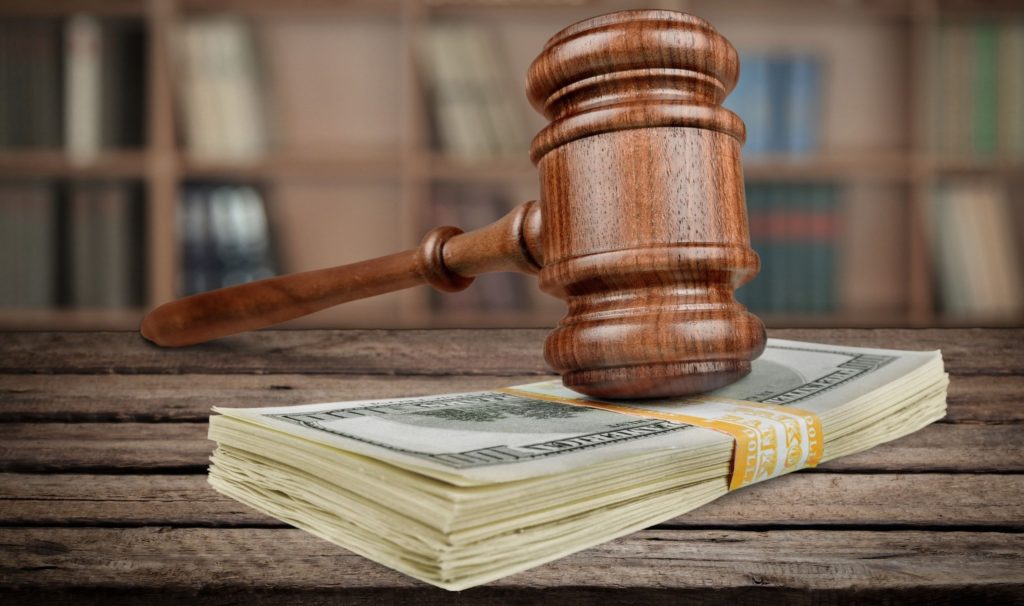
Award Of Attorney’s Fees In Personal Injury Litigation
A common question experienced personal injury and car accident attorneys typically hear from clients is can we get the at-fault party to pay our clients’ attorney’s fees. The answer is usually no, but there are a few exceptions.
The general rule regarding awarding attorney’s fees is called the “American rule,” where each side is responsible for their attorney’s fees, regardless who wins. This rule applies in Nevada as well. Unless an exception applies, a personal injury victim who files a lawsuit and wins will not be able to recover attorney’s fees from the at fault party.
In personal injury cases, exceptions to the American rule are usually found in statutes or court rules. The following are some of those exceptions that allow a winning party in a personal injury lawsuit to seek an award of attorney’s fees and costs.
Cases Less than $20,0000
A plaintiff in a personal injury lawsuit who wins $20,000.00 or less may recover their attorney’s fees from the losing party. This is permitted under Section 18.010(2)(a) of the Nevada Revised Statutes (NRS). The purpose of this rule is to allow plaintiffs in small lawsuits the opportunity to be made whole or to be fully compensated. See Northern Nevada Homes, LLC v. GL Construction, Inc., 134 Nev. 498, 422 P.3d 1234 (2018). Often times, the cost of litigation and attorneys deter those with minor injuries or smaller claims from filing lawsuits. This in turn motivates insurance companies to deny or force small cases into litigation, in hopes that some attorneys or litigants will stop pursuing their case. This happens particularly in low property damage car accidents or minor impact soft tissue or MIST injury cases.
Mandatory Arbitration
In Nevada, all personal injury cases valued at $50,000.00 or less generally proceed under the Court Annexed Mandatory Arbitration program. The prevailing party in cases in the arbitration program can ask the arbitrator to award attorney’s fees up to $3,000.00. This rule is set forth under Rule 16(E) of the Nevada Rules of Alternate Dispute Resolution.
Short Trial
Personal injury cases in the Court Annexed Mandatory Arbitration Program can end up in a short trial. Any party to a mandatory arbitration case can request a short trial within thirty (30) days of an arbitrator’s decision. In addition to the offer of judgment rule below or NRS 18.010 discussed above, Rule 27 of the Short Trial Rules permits and award of attorney’s fees up to $3,000 to the prevailing party.
Prevailing Party Wins An Award Higher Than Offer of Judgment
One of the most common way to obtain an award of attorney’s fees in a personal injury case is by issuing an offer of judgment and, if the offer is not accepted, winning an award higher than the offer of judgment. This is allowed under Rule 68 of the Nevada Rules of Civil Procedure.
To invoke this rule, the prevailing party must have first issued an offer of judgment at least 21 days before trial. In the offer, a party states they are willing to settle the entire case or certain claims for a specific amount. The offer must be reasonable and in good faith in both timing and amount. See Beattie v. Thomas, 99 Nev. 579, 588-89, 668 P.2d 268, 274 (1983). This means that the offer made was reasonable in amount and based on the information available at the time that offer was made.
The other party to whom the offer of judgment is issued has fourteen (14) days to accept the offer. If the offer is not accepted within that time, the offer is considered rejected. If the party that issued the offer then wins an amount higher than what they offered to settle the case for, that party can ask for an award of attorney’s fees.
Under the recent Nevada Supreme Court decision in Capriati Construction Corp., Inc. v. Yahyavi, 137 Nev. Adv.Op. 69, 498 P.3d 226 (Nov. 2021), a trial court may now award a personal injury attorney’s full contingency fee. The Court reasoned that permitting award of a personal injury attorney’s full contingency fee promotes the public policy behind the offer of judgment rule.
The public policy behind Rule 68 or the offer of judgment rule is to promote settlements. The purpose of Rule 68 was to punish parties who fail to accept a reasonable offer of judgment. Permitting the award of an attorney’s full contingency fee fulfills that purpose.
If you or a loved one are facing a lawsuit for injuries you sustained as a result of a car accident in Las Vegas, the experienced accident attorneys at D.R. Patti & Associates can assist you. With a combined total of 50+ years of experience, we can advise and guide you through the process and obtain the best results possible.
